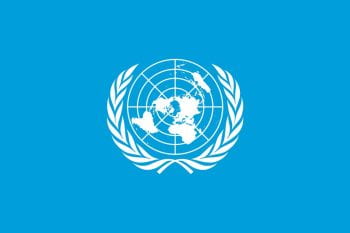The St. Louis Guaranteed Basic Income Program has opened applications, and SPI will help evaluate its outcomes.
Category: Financial Security
Mastercard Impact Fund renews grant to Social Policy Institute
Latest $1.5M grant will extend ongoing work to foster inclusive economic growth in St. Louis The Mastercard Impact Fund, with support from the Mastercard Center for Inclusive Growth —a founding partner of the Social Policy Institute (SPI) at Washington University in St. Louis — will continue its support for SPI with a second round of […]
JPMorgan Chase awards $1.6 million grant to address employment vulnerability of low-wage frontline workers

JPMorgan Chase has awarded a $1.6 million grant to the Social Policy Institute (SPI) at Washington University in St. Louis in aid of its Workforce Economic Inclusion and Mobility (WEIM) Project to address the employment vulnerability of low-wage frontline and essential workers. Through this work, SPI will build a better understanding of the public policy […]
What to Do With Your Tax Refund? Save for Emergencies. (Links to an external site)

Stephen Roll, associate director of research, did an interview with the New York Times on how to best use your tax refund
As Supreme Court Considers Student Loan Forgiveness, States May Expand Their Programs (Links to an external site)
President Biden calls for restoring child tax credit (Links to an external site)
Following President Biden’s call to restore the Child Tax Credit, ABC27 cited SPI research demonstrating the positive effects of the policy.
Submission to the Office of the United Nations High Commissioner for Human Rights on the Rights of the Child and Social Protection (Links to an external site)

An SPI research report on the effects of the 2021 Expanded Child Tax Credit was cited in a submission by Human Rights Watch to the United Nations.
Op-ed: We have the tools to end childhood poverty. Why don’t we?

One year after the last monthly Child Tax Credit payment, Congress has failed to gather enough support to extend this program, which our research suggests provided a critical safety net to American families. A key part of the American Rescue Plan Act, the Child Tax Credit provided $3,600 for each child under six and $3,000 for each child […]
Household Financial Security: What can we learn from research in the U.K.?

A Trans-Atlantic Policy Forum could bring together academic researchers,
policy makers, advocates, and corporate leaders in the U.S. and U.K. to develop
insights to fuel changes in public policies and corporate behavior to promote the
financial security of low- and moderate-income (LMI) individuals and families.
Retirement Plans Poised to Benefit From Student Loan Forgiveness (Links to an external site)
The Wall Street Journal shares how money received from the student loan forgiveness program will help people achieve other financial goals.
Let the Child Tax Credit work (Links to an external site)

Brookings shares research on the significant, lifelong effects and benefits programs like 2021’s Child Tax Credit have on children being raised in poverty and why the argument for declining labor force participation with an expanded CTC is weak.
The financial impacts of a near-miss with natural disasters

By Dan Zhao, postdoctoral research associate, and Michal Grinstein-Weiss, director When disaster strikes, it is easy to neglect the people on the boundaries. When assessing the impact of adverse economic shocks, whether it be natural disasters, pandemics, or factory shutoffs, the focal point is on those who were directly devastated by the shock. However, the […]
Ramadan Just Ended. Its High Economic Price Is Here to Stay (Links to an external site)
In an exclusive with The Marker, the Social Policy Institute investigated the economic impact of Ramadan in Israel.
As the expanded child tax credit draws to a close, yet another study highlights its positive impact (Links to an external site)
The Marketplace interviewed Elaine Maag, senior fellow of the Tax Policy Center and co-author of the Child Tax Credit report by SPI, on the impacts the credit had on the financial security of American families.
Child Tax Credit helped some parents start their own business, study finds (Links to an external site)

Stephen Roll, associate director of research at the Social Policy Institute, was interviewed by Yahoo! Money about a recent survey that found that employment did not decline during the period that the Child Tax Credit was in effect.
Study: Enhanced Child Tax Credit Helped Parents Start Own Businesses (Links to an external site)
The Center for the National Interest highlighted SPI’s study finding that the Child Tax Credit supported parents to start their own small businesses.
Money on the table: child credit $ available via tax returns (Links to an external site)
The Associated Press shared research from SPI that found that the Child Tax Credit hasn’t changed employment.
Analysis: Child Tax Credit Did Not Cause Labor Force Exit (Links to an external site)
The Center for the National Interest discussed SPI’s recent Child Tax Credit (CTC) study which found that the CTC did not create a significant change in the labor force.
How Wealth Inequality Shapes Life in the St. Louis Region (Links to an external site)
Yung Chun, data analyst III at SPI, and Selina Miller, postdoctoral research assistant, were interviewed by the St. Louis Public Radio on wealth inequality in the U.S.
Building a better safety net for small businesses (Links to an external site)
In an op-ed by Michal Grinstein-Weiss, SPI, and Salah Goss, Mastercard Center for Inclusive Growth, SPI research suggests that more equitable financial policies and services are needed to support small businesses.
Rewriting the social contract (Links to an external site)
Mathieu Despard, faculty director at SPI, discusses how workplaces have innovated with their benefits over the course of the pandemic.
Building an effective employee financial wellness program [5 Key Insights]
Anyone who does a “happy dance” on payday knows how much employers affect our financial lives. Most of us depend on employment to make ends meet and pursue our long-term goals. That’s why through the Workforce Financial Stability Initiative, we’ve been studying employee financial wellness programs (EFWPs) since 2017. Our motivation was simple: with growing […]
Guest opinion: How to help your employees avoid the perils of payday loans (Links to an external site)
WashU’s research with employee financial wellness programs, specifically related to employee loans, was featured in a recent op-ed with St. Louis Business Journal.
How to Deal With Debt While Unemployed (Links to an external site)
Stephen Roll, research assistant professor at SPI, was interviewed for a story with OppLoans about debt during unemployment.
SPI researchers win top awards for papers at ACCI Conference

Yingying Zeng, Mathieu Despard, and Sophia Fox-Dichter received the National Endowment for Financial Education (NEFE) Paper Award for their paper “Workplace Financial Counseling: Credit Outcomes Among Lower-Paid, Entry-Level Workers”.
Stephen P. Roll, Blair D. Russell, Dana C. Perantie, and Michal Grinstein-Weiss received the JCA Best Article of the Year for their paper “Encouraging Tax‐Time Savings with a Low‐Touch, Large‐Scale Intervention: Evidence from the Refund to Savings Experiment”.
Employees are stressed about money. Financial wellness benefits can help. (Links to an external site)
The National Fund for Workforce Solutions and the Social Policy Institute at Washington University in St. Louis have collaborated on a new Guide to Employee Financial Wellness to help employers identify the best program for their team. The guide combines four years of research and best practices collected from a wide range of employers using employee financial wellness programs.
Messaging matters when it comes to COVID-19 economic impact payments
The way policymakers and financial capability practitioners communicate about the CARES economic impact payments and other current or future payments may help guide households to use these benefits in the way best suited to their financial situation. This is important because while some households may use the CARES payments to pay down debt and other households may be fortunate enough to be able to save their payments, others will need these payments to simply make ends meet.
WashU Expert: What tax refunds tell us about use of CARES payments (Links to an external site)
The Source: Research examining how households use similar payouts, like the tax refund, can help shed light on what households might do next, says an expert on asset building at the Brown School at Washington University in St. Louis.
What tax refunds tell us about how households might use economic impact payments
While economic impact payments are different than a tax refund, we can be fairly confident, based on this research, that in this moment of emergency, payments from CARES Act will be used on essential purchases. It is also possible households will allocate their economic impact payments to clear debt entirely or to make a minimum payment in order to keep some liquid assets in checking or savings.
United Way extends a financial life raft to employees who need it (Links to an external site)
United Way is offering TrueConnect, an employee financial wellness program, through a partnership with the National Fund for Workforce Solutions and Social Policy Institute at Washington University in St. Louis. It is available to for-profit and nonprofit employers with 100 or more employees.
People Do Save Some of Their Tax Refund, but Could Be Saving More (Links to an external site)
National Fund for Workforce Solutions Receives New Funding to Promote Good Jobs (Links to an external site)
In today’s tight labor market, employers compete for talent and jobs are plentiful. And workers have choices…
Credit counseling can lead to significant reduction in consumer debt (Links to an external site)
People who take advantage of nonprofit credit counseling services have statistically significant reductions in consumer debt, finds a new study from the Brown School at Washington University in St. Louis.
Social Policy Institute receives $385,000 grant (Links to an external site)
The newly established Social Policy Institute at Washington University in St. Louis has received a $385,000 grant from JPMorgan Chase & Co. as part of the company’s $125 million, five-year global commitment to promoting customers’ financial health.
New consumer protection director to speak June 12 (Links to an external site)
Kathy Kraninger, who was named director of the Consumer Financial Protection Bureau (CFPB) six months ago, spoke about the bureau’s new directions and initiatives in savings policy in Hillman Hall’s Clark-Fox Forum. Michal Grinstein-Weiss, professor in Brown School and SPI director, will oversee a panel focused on the importance of savings in economically vulnerable communities.
Obamacare helps people make mortgage payments and rent, study concludes (Links to an external site)
The passage of the 2010 Affordable Care Act provided many more Americans access to health insurance, but Obamacare’s legacy goes beyond medicine. According to new research, greater access to health insurance also leads to a significant reduction in Americans becoming delinquent on rent and mortgage payments. Riquier, A.
Hope You Aren’t Counting on Getting a Tax Refund This Winter (Links to an external site)
While the Trump administration has pledged that the Internal Revenue Service will still issue tax refunds, recent changes to the tax code will make that promise difficult to keep, especially with regard to these critical refunds. As the shutdown stretches on, people who depend on the EITC for relief may face serious hardship. Capps, K.
Health insurance or house payments? Obamacare means many poor Americans are able to pay their rent and mortgages on time by reducing health care costs, study shows (Links to an external site)
Researchers from University of Colorado at Boulder and Washington University in St. Louis analyzed three years of tax data and survey responses from 15,000 people to test the effect of having health insurance among low-income Americans. They found that low-income people who purchased health care through an Obamacare marketplace were 25 percent less likely than poor Americans without health insurance to miss housing payments. Bauman, V.
Five things to know about Financial Wellness Programs (Links to an external site)
According to a 2017 survey by benefits consultants Alight Solutions, almost 25 percent of employers have a financial wellness program in place, and almost half are in the process of creating one. Some three out of four firms with more than 10,000 employees now offer a financial wellness program, according to a recent study by the Employee Benefits Research Institute. Wasik, J.
Growing old is nice, but boy is it costly (Links to an external site)
Half of Americans have no retirement savings, according to a Brookings Institution article of three years ago. Hasty reactions to market fluctuations result in escalating debt, according to Michael Grinstein-Weiss, associate professor of social work at Washington University in St. Louis and associate director of the Center for Social Development. Shea-Taylor, B.
Financial Planning: Prepare now, avoid bankruptcy later (Links to an external site)
In 2015, Brookings Institution economist Michal Grinstein-Weiss testified before the Senate Special Committee on Aging that 45 percent of Americans had no retirement savings. Without corrective action, we can expect the rate of elder bankruptcy to persist or even increase in coming years. Merrel, S.